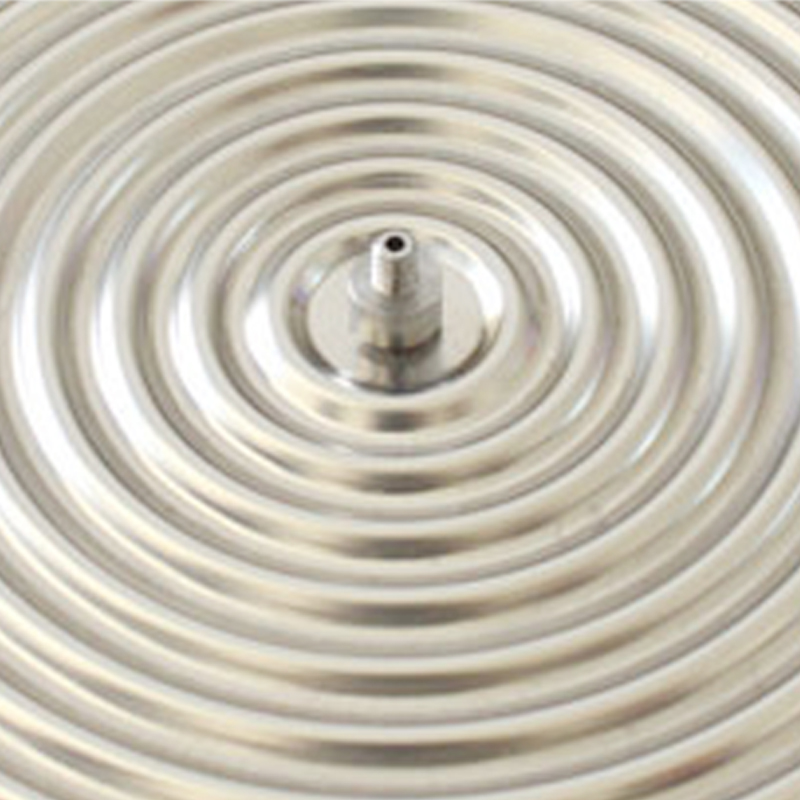
Oct . 12, 2024 19:02 Back to list
custom differential pressure gauge bourdon tube
Understanding Custom Differential Pressure Gauge with Bourdon Tube Technology
In the realm of industrial measurement and control processes, differential pressure gauges play a pivotal role. Among the various technologies employed, the Bourdon tube remains one of the most reliable and widely utilized mechanisms. This article delves into the intricacies of custom differential pressure gauges incorporating Bourdon tube technology, exploring their principles, applications, and advantages.
What is a Differential Pressure Gauge?
A differential pressure gauge is an instrument designed to measure the difference in pressure between two points in a system. This measurement is crucial in numerous applications, such as monitoring fluid levels, airflow rates, and process conditions in industrial environments. The ability to measure this difference allows for more precise control and optimization of processes, enhancing efficiency and safety.
The Bourdon Tube Mechanism
At the heart of many differential pressure gauges lies the Bourdon tube – a simple yet effective mechanical component. The Bourdon tube is a curved, hollow tube that responds to changes in pressure. When pressure is applied to one end, the curvature of the tube changes, causing it to straighten out. This movement is then translated into a rotational motion by a series of gears, which ultimately drives a pointer to indicate the pressure difference on a calibrated dial.
The Bourdon tube’s design can vary to accommodate different pressure ranges and applications. In a differential pressure setup, two Bourdon tubes might be used to measure the pressures at two points, with the gauge calculating the difference.
Customizing Differential Pressure Gauges
Custom differential pressure gauges are tailored to meet specific application requirements. This customization process may involve selecting materials resistant to corrosive or high-temperature environments, adjusting the size and range of the Bourdon tube, or incorporating advanced features like digital displays or transmitters. Custom gauges are particularly valuable in industries such as oil and gas, pharmaceuticals, and food processing, where precise measurements are critical.
Common considerations in custom gauge design include
1. Material Selection Depending on the media being measured, the materials must withstand corrosive substances, high pressures, and extreme temperatures. Stainless steel is a popular choice for its durability and resistance to corrosion.
2. Pressure Range Custom gauges can be designed to measure a wide range of pressures, ensuring accurate readings for different applications. This is crucial in situations where processes might operate under varying conditions.
custom differential pressure gauge bourdon tube

3. Size and Mounting Options The physical size of the gauge and the type of mounting (such as panel-mounted or inline) can be customized to fit specific installation environments.
4. Calibration and Accuracy Custom gauges can be calibrated to meet stringent accuracy standards, essential in sectors like pharmaceuticals where precision is non-negotiable.
Applications of Custom Differential Pressure Gauges
Custom differential pressure gauges with Bourdon tube technology find applications across various industries
- HVAC Systems They help monitor airflow and ensure system efficiency. - Water Treatment Plants Gauges measure pressure differences in filtration systems, ensuring optimal operation. - Process Industries In chemical manufacturing, these gauges monitor pressure drops across reactors and separators, helping maintain safe operating conditions.
Advantages of Using Bourdon Tube Differential Pressure Gauges
1. Reliability The mechanical design of Bourdon tubes ensures consistent performance and longevity even under harsh operating conditions.
2. Ease of Maintenance Mechanical gauges require minimal calibration and can often be repaired rather than replaced, reducing downtime.
3. Cost-Effectiveness Custom gauges can be more economical than complex electronic alternatives, making them an attractive option for many applications.
4. Simplicity The straightforward operation of a Bourdon tube gauge facilitates easy understanding and use by operators.
In conclusion, custom differential pressure gauges that utilize Bourdon tube technology are essential instruments in many industrial applications. Their reliability, ease of customization, and effectiveness in providing accurate pressure measurements make them invaluable tools for enhancing process control and efficiency. As industries continue to evolve, the demand for specialized measurement solutions will only grow, underscoring the importance of innovations in differential pressure gauge technology.
-
High-Precision Mass Diaphragm Pressure Gauge - Reliable & Durable Solutions
NewsJun.10,2025
-
Explain Diaphragm Pressure Gauge Expert Guide, Top Manufacturers & Quotes
NewsJun.10,2025
-
Affordable Differential Pressure Gauge Prices in China Top Manufacturers
NewsJun.10,2025
-
Reliable Water Fire Extinguisher Pressure Gauges for Safety
NewsJun.10,2025
-
Durable Diaphragm Protection Pressure Gauges Get Quote
NewsJun.09,2025
-
WIKA Differential Pressure Gauge with Switch Reliable Monitoring & Control
NewsJun.09,2025
